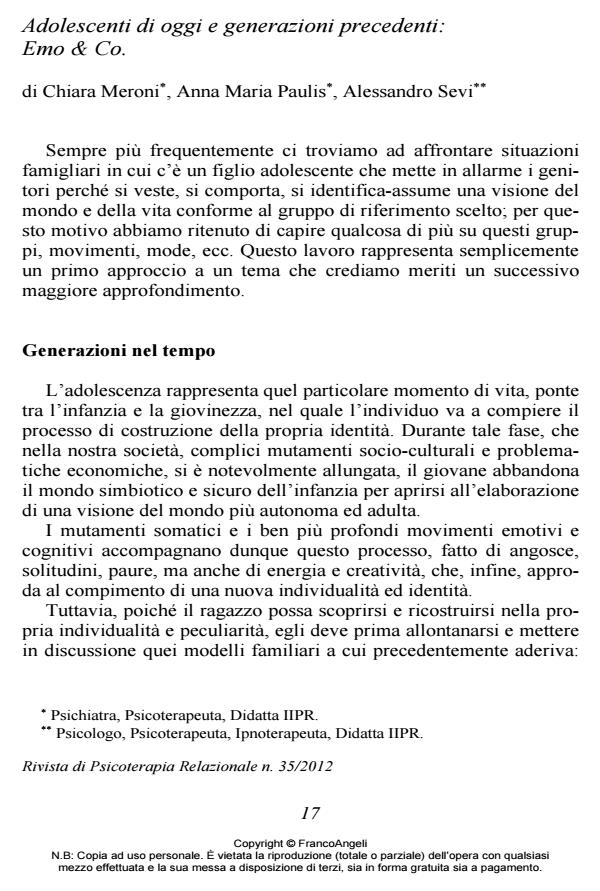Today’s teenagers and older generations: Emo & Co.
Journal title RIVISTA DI PSICOTERAPIA RELAZIONALE
Author/s Chiara Meroni, Anna Maria Paulis, Alessandro Sevi
Publishing Year 2012 Issue 2012/35 Language Italian
Pages 11 P. 17-27 File size 532 KB
DOI 10.3280/PR2012-035002
DOI is like a bar code for intellectual property: to have more infomation
click here
Below, you can see the article first page
If you want to buy this article in PDF format, you can do it, following the instructions to buy download credits

FrancoAngeli is member of Publishers International Linking Association, Inc (PILA), a not-for-profit association which run the CrossRef service enabling links to and from online scholarly content.
Adolescence is a delicate phase of the individual life cycle in which new generations are trying to communicate with the world they are entering through specific procedures such as rebellion and opposition. While this is a necessary condition for access to an evolutionary process of differentiation, which leads to personal growth, but it can be considered an opportunity for adults can understand the "response" of youth in society and the world that are prepare for them. In every historical era there have been phenomena of belonging that has seen young people adhere to rules ideological (political and/or religious), behaviour and clothing that gave them that sense of unity that brought them to express an unease that was actually extended to the wider context. Even today we are witnessing similar phenomena. They have changed the terms and specific characteristics but not the function, which still seems to be a container of emotions and suffering in this way they can find their ownidentity. The authors have observed and identified groups of young people with whom you are to live in today's society finding its distinctive characteristics.
Keywords: Adolescence, belonging groups, unease, evolution.
Chiara Meroni, Anna Maria Paulis, Alessandro Sevi, Adolescenti di oggi e generazioni precedenti: Emo & Co. in "RIVISTA DI PSICOTERAPIA RELAZIONALE " 35/2012, pp 17-27, DOI: 10.3280/PR2012-035002